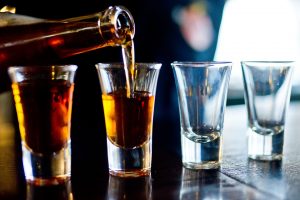
Alcohol and its Effect on Diabetes
Blood Sugar Support. Alcohol is a depressant. It depresses the central nervous system and affects every organ of  the body because it is absorbed rapidly by the stomach and intestine and enters the bloodstream. Effects of alcohol on the body depends on how much it is consumed. Small amount of alcohol acts as stimulant and make people feel happy and talk a lot while too much alcohol can impair the body. Alcoholic drinks are full of empty calories, have no nutritional value and also has full of sugar. it can negatively alter the blood sugar levels and puts drinkers at a high risk of developing alcohol-related diabetes.
the body because it is absorbed rapidly by the stomach and intestine and enters the bloodstream. Effects of alcohol on the body depends on how much it is consumed. Small amount of alcohol acts as stimulant and make people feel happy and talk a lot while too much alcohol can impair the body. Alcoholic drinks are full of empty calories, have no nutritional value and also has full of sugar. it can negatively alter the blood sugar levels and puts drinkers at a high risk of developing alcohol-related diabetes.
Drinking alcohol not only affects the blood sugar, it also increases the insulin secretion and leads to low sugar in the blood. Too much alcohol interrupts normal production of glucose and the hormones regulating it and leads to high blood sugar levels.
Effects of Alcohol
- Alcohol increases the blood sugar levels because it stimulates appetite which results to overeating. It can affect the will power by increasing bad dietary choices. Some medications should not be taken with alcohol. It can increase blood pressure.
- Too much alcohol can lead to symptoms similar to that of low blood sugar. This includes confusion, sleepiness, blurry vision, headaches, lightheadedness or dizziness, lack of coordination and unconsciousness.
 People with diabetes should avoid mixing drinks and cocktails to prevent increase in blood sugar levels. Women with diabetes should not have more than one drink of alcohol per day and men should limit their drinks to only two per day. Sip drinks slowly and alternate your alcoholic drink with water so you can be clear-headed and to help you hydrated. Food helps slow down alcohol absorption and does not affect production of glucose, so don’t drink on an empty stomach or when your blood sugar is low. If you have to drink, choose the light beers or calorie-free drink mixes to help you keep your sugar in check.
People with diabetes should avoid mixing drinks and cocktails to prevent increase in blood sugar levels. Women with diabetes should not have more than one drink of alcohol per day and men should limit their drinks to only two per day. Sip drinks slowly and alternate your alcoholic drink with water so you can be clear-headed and to help you hydrated. Food helps slow down alcohol absorption and does not affect production of glucose, so don’t drink on an empty stomach or when your blood sugar is low. If you have to drink, choose the light beers or calorie-free drink mixes to help you keep your sugar in check.
Diabetic people should be wary of drinking alcoholic drinks. Stay on the recommended dosage to prevent reduction of the effectiveness of insulin and wipe out their energy storage. Check your blood sugar levels before and up to 24 hours after drinking and before going to bed.
Consumption of carbohydrates before drinking is advised to help keep steady blood sugar level. It has been found that moderate drinking of alcohol and taking in Blood Sugar Support supplements can lower the risk of developing type 2 diabetes than those who do not. However, it is best to stay on the recommended consumption.
